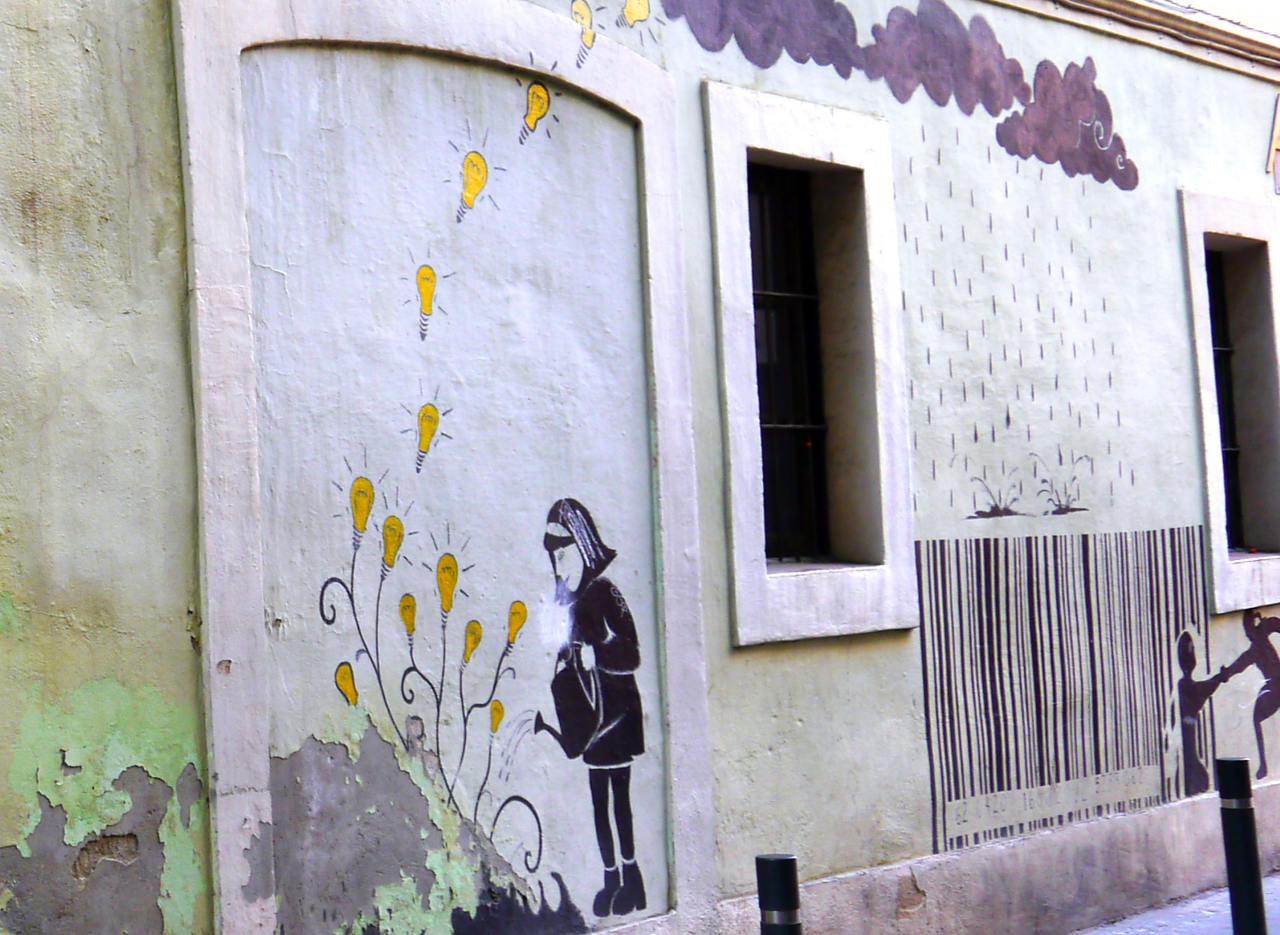[This piece was written during the COVID-19 pandemic lock-downs]
As the pandemic drags on, many are observing changes in our perception of time. After decades of speeding up into a rather frenzied pace of modern life and production, i.e., making more, doing more – faster, ever-busy and fixated on economic growth – we were forced to stop.
Our relationships with time are crucial to what makes us human, as we learn from the past and are motivated by our future. So, what are we to do when our ability to plan is taken away and our perception of time becomes distorted? Rather than bowing to the pressure to use this “extra” time “well”, we should rather consider what possibilities these experiences open up from the perspective of time sovereignty or: the “right to one’s time”. Time policies and philosophies of slow living can serve as an inspiration.
With so many of us spending increasing amounts of time indoors due to lockdowns, social media was awash with people learning how to bake bread, improve their fitness, reorganise their homes, or start their own businesses. The pressure to have a productive pandemic and invest this extra time wisely was widely felt, and a predictable result in a culture that believes time=money. However, this is rather at odds with the reality that the pandemic also requires us to devote additional time to care work and domestic labour.
The body knows time from its internal rhythms, which are measured solely in the mind. As Ruth Ogden’s research on the effects of the UK’s COVID-19 lockdowns indicate, the adage “time flies when you’re having fun” also suggests that our emotional state influences the subjective speed with which time passes. Whereas positive emotions and unfamiliar, novel experiences lead to perceptions of time flying, the increase in depressed emotions and the repetitive nature of daily tasks tends to lead to impressions of time slowing down. So, rather than “fitting more in” to our time, it has become more challenging to devote the necessary time to the basic needs of ourselves and people we care about.
The absurdity of pressuring people to over-achieve during a once-in-a-lifetime, life-threatening global health crisis made me pause. As the lines become increasingly more blurred between paid working time, family-time, self-care time, life admin-time, education-time, community-time, etc., it’s a good moment to reflect on pathways out of our overachieving, competitive, commodified temporal mode of living. Rather than centring the time-productivity nexus, we may turn towards slower temporal modes that rest on collective wellbeing.
While everything takes place in space and time, spatial governance and planning is far better established than policies taking temporal aspects of our everyday lives, culture, and economy into account. Dietrich Henkel argues that there is a rising need for explicit time policies, including gender and time structures in everyday life, urban time policy, time and health care, and the time-policy outcomes of political processes. Our lived experiences of time and preferences regarding how to spend it should also surely factor into these decisions.
This understanding of time as an explicitly social concern has normative implications in terms of our subjective temporal wellbeing, with one recent study suggesting that low time pressure and high levels of satisfaction with how we spend our time correlate with higher perceived wellbeing in our everyday lives. If we prioritise the right to one’s time in our collective decision-making, such as through the establishment of time policies, then the measurement of such rights surely includes time for personal relations such as time for oneself, for family, children, the elderly, friends, and love. However, such free time away from the pressures of the capital-labour relationship of commodified time often requires public assistance in childcare and elderly care. People’s ability to exercise such rights to time are also deeply affected by their geographical and socio-economic position, inequalities which are shaped by social markers such as gender, race, age, disability, and citizenship status.
There have been experiments with time policies to address such temporal inequalities right here in Europe. Italy’s Tempi della Città or “times of the city” approach was initially driven by feminist activism in the 1970s and 80s, and became popular policy in the mid-1990s. It recognises that citizens exist within complex social environments. People are affected by the timetabling and accessibility of public and private services such as education and care; by the organisation of transport mobility; and by their working hours and locations.
There are two important aspects of times of the city: the first relates to individuals’ ability to manage their free time and decide how to spend it; the second is the social organisation of time, including the leeway people have regarding their schedules and the range of opportunities available during their non-working time including access to services. These both impact people’s ability to exercise the right to one’s time. Three key policy themes are accessibility, requiring close attention to the needs of the least mobile and those with caring responsibilities; desynchronisation, meaning the adaptation of public timetabling so that work, school, and access to services are more accessible; and flexibility surrounding in-person versus online attendance as well as the ability to set your own work hours or access services on demand.
In the pursuit of collective solutions to work-life balance and decision-making conflicts, 75% of Italian regions implemented urban time policy regulations by 2015. One example is the Territorial Timetable Plans (TTPs) found in more than 500 municipalities. Lombardy Region’s TTP, for example, has involved desynchronising school timetables with typical working hours to minimise rush-hour commuting and support caregivers in school drop-offs and pick-ups; coordinating retail opening hours with public transport and work times; coordinating tourist and visitor services so that people have the possibility to attend multiple sites; sustainable public transport with harmonised scheduling between municipalities, which also reduces pollution; improvements to the accessibility and hours of public offices’ services, with shifts to online availability; and enhancements to working-from-home options. These all have implications for gender equality, social welfare policy, and environmental and urban planning.
The spread of the “slow city” movement was achieved through Cittaslow, which was founded in Italy in 1999 and currently boasts 278 member cities in 30 countries around the world. Members seek to promote an alternative, slower rhythm for urban life based on local economy and handicraft, ecological sustainability, local identity, enhancement of local history and culture. Voluntary work, shared social responsibility and solidarity are at the heart of the philosophy.
It’s a vision rooted in a specific “place”, as opposed to the interchangeability and sameness of “non-place” global cities. Whereas slow living is usually associated with bucolic rural landscapes and the countryside, Cittaslow is anything but stuck in nostalgia; rather the movement is supportive of innovations such as car- and bike-sharing and renewable energy. Living slow can be as simple as taking the time to eat well, walk, sleep late, or be with loved ones; all essential ingredients for social reproduction and thus improvements for gender equality as outlined in the previous blog posts in this series. Slowing down can also incorporate wider socio-economic principles of deceleration and degrowth.
On a smaller scale of change and influence for decelerating in pursuit of enhanced wellbeing and quality of life is the Germany Society for the Deceleration of Time, guided by the philosophy that time is honey. As chairman Martin Liebmann explains, through over 30 years of art, activism, networking, and research, its members have sought to halt the increasing, destructive acceleration of almost all aspects of social life. The Society supports the right to shape our lives in dignity and oppose the consumeristic ideology of seeking fulfillment through externally produced goods and adventures. And they do it all in humorous spirit, as evidenced by two small opportunities to slow down: the Not to do list and No shopping list. Probably helpful for the panic buyers that have repeatedly emptied supermarket shelves throughout the pandemic.
Progressive cultures used to look forward, with hope and optimism for better days to come. Now, in the context of lost decades for social-ecological reorganisation, and setbacks in gender equality driven by the pandemic, the futuresometimes looks bleak and our relationship with time is becoming increasingly complicated. However, if we commit to orienting ourselves towards the right to one’s time, a revaluation of time to care, and above all recognise the value of slowing down and ignoring the clock, we may witness a blossoming time for optimism regarding our ability to influence our collective wellbeing. For these transformations to take place we require explicit “times of the city” policies that prioritise temporal wellbeing, in order to overcome the surrounding structures that currently prevent people from engaging with time in new ways.

One truism that’s emerged during the pandemic is that while we’re all in the same storm, we’re riding it out in very different boats. Of key concern here is the pandemic’s disproportionate temporal impact on women—particularly on employment conditions and share of unpaid domestic labour and caring responsibilities.

If we are to accept degrowth in wealthy nations as the only sane and just response to the deterioration of the planetary biosphere, how should we reorganize care and reconceptualize health? We know that a degrowth transformation will require a fundamental reorganization of societal structures underlying growth-focused economies in the Global North. The structures dedicated to our health needs a...

The third annual Global Degrowth Day on the theme of care will take place on 5th June 2021. Here, Corinna Dengler and Giacomo D'Alisa expand on the centrality of care to degrowth. Degrowth is an activist and political claim supported by academic research that aims at creating global human well-being within planetary boundaries. Degrowth problematizes interlinking systems of domination ...